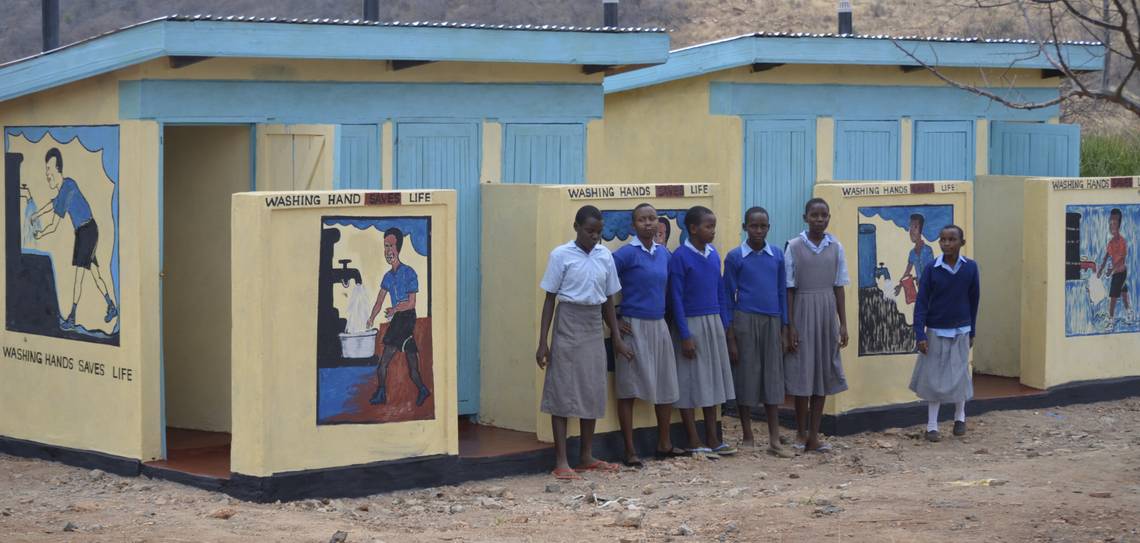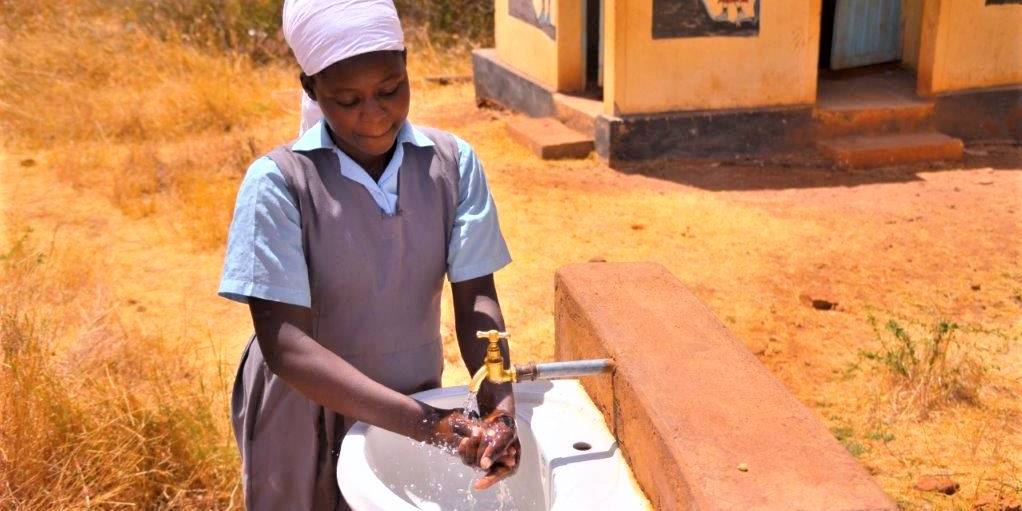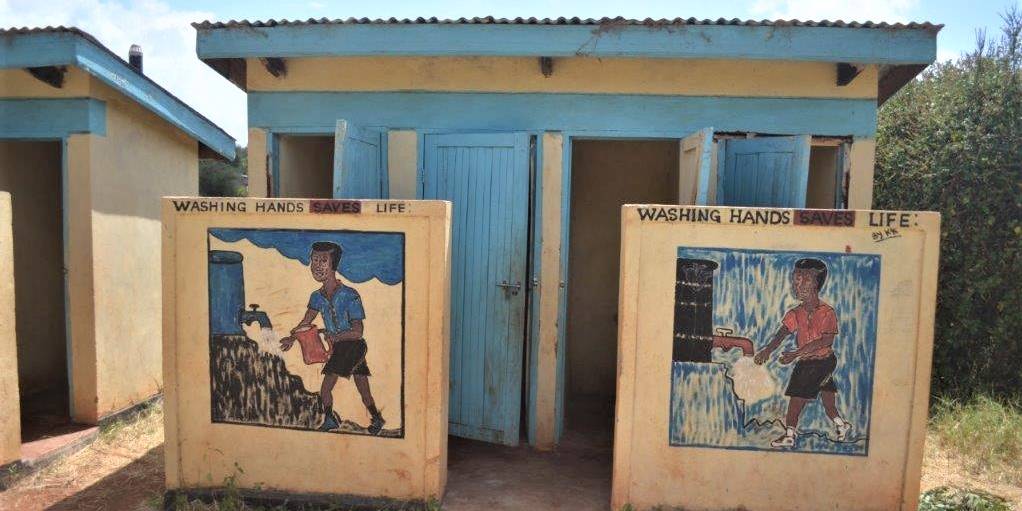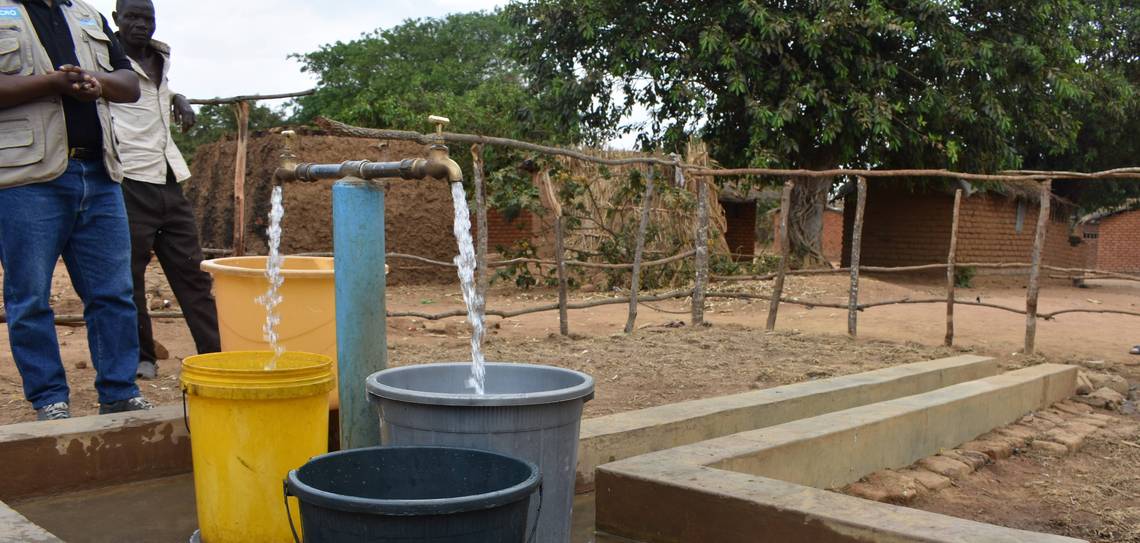
World Toilet Day is observed every year on 19 November. But there is much more to this than just toilets. The focus is on the life-threatening dangers posed by inadequate, damaged, or broken toilet systems in large parts of the world.
The Mukuru slum is a collection of informal settlements in the city of Nairobi in Kenya. It is also the largest. There are toilets, but they are neither clean nor safe and the people must pay money to use them. Because of lack of proper toilets, people have had to use so-called flying toilets. This is a name for a plastic bag used to collect human faeces. The filled and tied bags are thrown away into ditches or are even flung up on a corrugated iron roof. The slum is criss-crossed by foul-smelling streams. This is how diseases spread.

The United Nations wants to tackle the bad hygienic situation with World Toilet Day. The day has been an annual United Nations observance since 2013. It is about more than just the porcelain bowl, but about sanitation and hygiene—from drinking water to sanitary facilities.
A deadly danger
Around 2.2 billion people worldwide have no access to clean water. About 842,000 people die every year from diarrhoea caused by contaminated drinking water. Around 419 million people have no access to sanitary facilities and must defecate in the open. This is how respiratory and waterborne diseases spread.
The United Nations has set itself sustainable development goals, and one of them is “access to safe water, sanitation, and hygiene” as “the most basic human need for health and well-being” by 2030. The German aid organisation NAK-karitativ and its partners have also been working to improve the situation for years. Many projects also include the WASH programmes. The abbreviation stands for water, sanitation, and hygiene.

A protected space
A central toilet and shower complex was built in the Mukuru slum in Nairobi. It is a joint project with the local aid organisation Umande Trust, experienced in sanitation solutions, and with KUMEA, the New Apostolic aid organisation in East Africa.
What is so special about it is that the complex is connected to the central wastewater network and supplemented by a biogas plant and is continuously cleaned and monitored. This means that women and girls are better protected from assault. The biogas that is produced is cheap and can be used for cooking. The people can buy clean water for little money at a water kiosk. And the proceeds finance the team that maintains the facility.
Hygiene becomes a trend
Together with the regional New Apostolic relief agency NACRO, NAK-karitativ has started a project in Zambia for 500 students and 150 teachers. Wells are being built or repaired at 25 schools, and sanitary and washing facilities are being renovated.

Staff also taught the children good hygiene practices. So-called WASH clubs ensure that knowledge is passed on: older pupils tell younger ones what they know, and the children take their new knowledge home with them and share it with their families. Villagers from the immediate area learned how to maintain and repair the systems.
For a better future
In Malawi, only six per cent of the population have regular access to adequate toilet facilities. As pit latrines are prone to collapse and overflowing, people must resort to open defecation in the bush or in open water.

NAK-karitativ and the aid organisation NACRO Malawi therefore supplied twelve villages with drinking water and sanitary facilities in spring this year. The villages in the Phalombe region were each given a water point including several taps. Groups were trained to help with knowledge building in the WASH sector.
Such projects are about much more than cleanliness: poor hygiene makes people ill and keeps children from being able to go to school. There is another aspect. Girls have to stay home from school during their periods because they do not have access to water or toilets or hygiene products. Any improvements in this area therefore have an impact on people’s education and thus on their prospects. Here too, the aim of the organisations helping is to enable people to lead a self-determined life.




